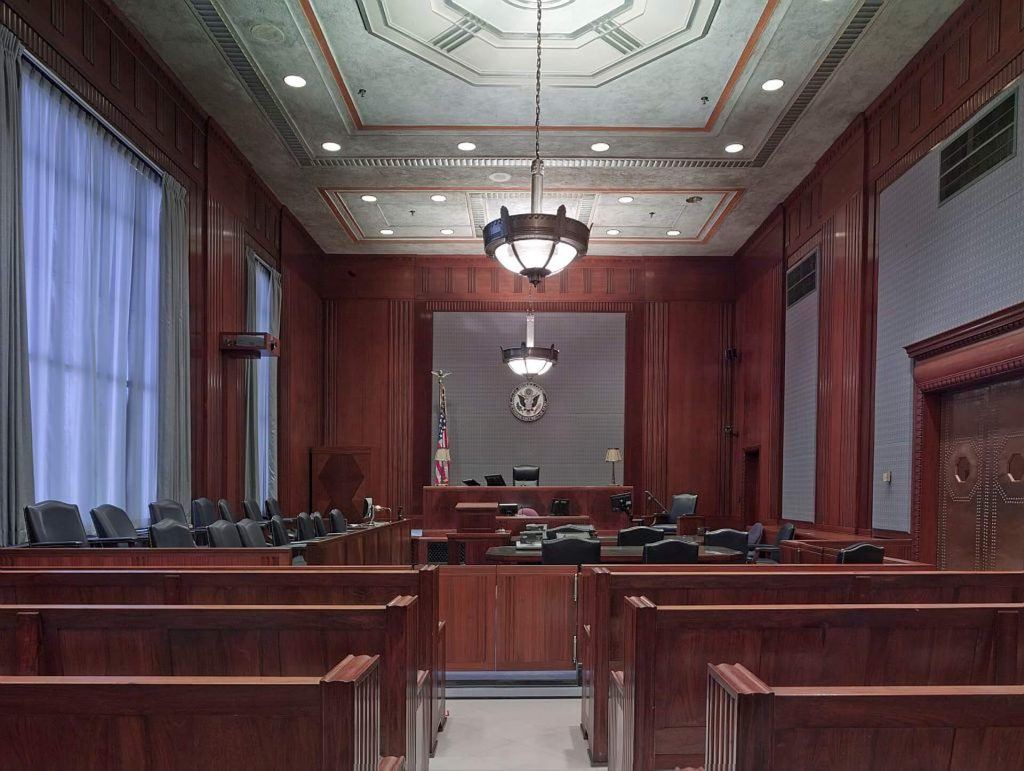The Meaning of Litigation in a Personal Injury Case
The Meaning of Litigation in a Personal Injury Case

In a personal injury matter, it is usually the goal of all parties to reach a compromise settlement without having to involve the court system. If a settlement cannot be reached, it is helpful for a client to understand the term “litigation” in the context of a personal injury claim.
Don’t be afraid of the term “litigation”. Even if a case ensues litigation, it has a 98% chance of resolving at some point before it reaches a jury.
When Does Litigation Begin?Litigation begins when a lawsuit (“Complaint”) is filed. It brings a dispute into the realm of the court, and it usually means attempts to resolve the matter informally have failed. Once the lawsuit has been filed and served, the responding party (“defendant” or “respondent”) will file an Answer to the Complaint and both parties will usually begin the process of discovery, which includes written discovery and oral depositions, further discussed below.
Five Elements of LitigationLet’s examine the five elements of litigation in a personal injury case.
- Discovery – Discovery is the official investigation of evidence of a lawsuit. It typically consists of the exchange of information and facts between the two parties. At the beginning of legal action, both parties may not have enough evidence to support their claims in court. During the discovery stage, attorneys can serve the other party discovery requests, which requires the parties to reply or provide the requested written documents. An example is that if a person was injured in a car accident that involved a distracted driver, he or she can prepare discovery requesting the cellphone records of the other driver at the time of the crash. Discovery also includes oral depositions. A deposition is a question and answer session conducted under oath and transcribed word for word by a court reporter. Both parties involved can subpoena witnesses to depositions and hearings during this stage.
- Motions – A motion is filed when one party seeks to petition the court to make a decision about a disputed detail of the case. A motion hearing usually involves written briefs and oral arguments presented to the presiding judge. Discovery motions are common and may include requests for additional time to complete discovery or to compel the other side to answer (or more fully answer) the propounded discovery.
- Expert Witnesses – Once discovery is complete, and your case has taken shape, it may be essential to engage expert witnesses that can support your claim and testify at trial. Experts are professionals such as doctors, private investigators or CPAs that have sufficient expertise and knowledge in their field. Expert witnesses can play a crucial role in the success of your case. To continue with the distracted driver example, an expert witness may be able to testify that the distracted driver was the leading cause of your injuries.
- Preparation for Trial – As your case develops through litigation, your attorney will begin preparing for trial or pre-trial hearings, such as the settlement conference. Preparing for trial can take on many forms. It usually includes meeting with witnesses, preparing the witnesses for trial, and filing and responding to pre-trial motions.
- Trial – A trial is the presentation of a case to a jury and/or judge. At trial, your attorney will present evidence that was gathered during the discovery process and argue in support of your version of events. If your expert witness testifies that it is his or her opinion that distracted driving was the cause of your injuries, the expert witness is providing the jury with a basis or foundation for them to accept the conclusion. Each party takes turns presenting its case. The plaintiff presents first, and the defendant will then defend against the allegations. Once both parties believe that they have presented their evidence, they then rest their cases. They each deliver closing arguments, and the judge tells the jury to make a decision. The jury deliberates and comes back with a verdict.
Litigation is an ongoing process. It does not end even after a verdict has been declared. The way a monetary award is collected is often negotiated or disputed. It’s possible the losing side is not happy with the decision and files an appeal. Even if both parties accept the verdict, there are still orders, hearings, and motions that are required to close a case properly.
Deciding Whether to Settle or LitigateIn a legal proceeding, one of the most challenging decisions that parties typically face is deciding when to settle and when to move forward with litigation. Generally, the best outcome is reaching a fair settlement outside of litigation, but that is not always possible. A good attorney will know whether taking a case to trial is a good bet. But it is important to remember there is always substantial monetary risk involved when taking a case to trial.
Editor’s Note: This page has been updated for accuracy and relevancy [cha 4.7.21]
Image by David Mark from Pixabay
:cha [cs 817]